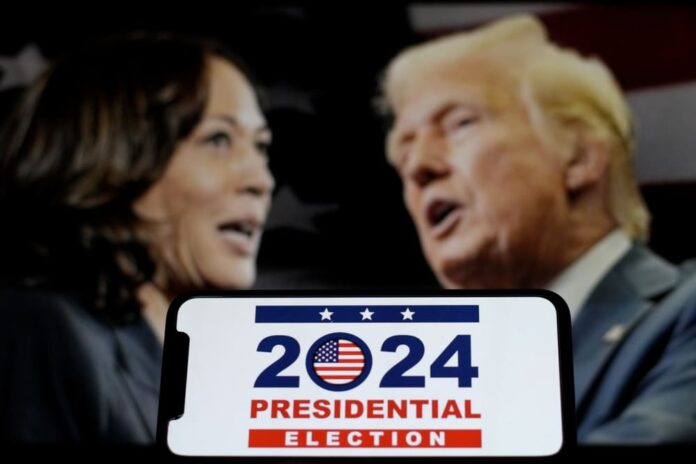Vinicius Barbosa
Prediction markets have become popular during this presidential election year in 2024, especially after implementing cryptocurrency payments via Circle’s USDC. Deemed more trusted than the legacy media survey polls, prediction markets have been the go-to place for US election insights.
These platforms provide universal access with “skin in the game” rather than opinion surveys or simulations, leveraging financial incentives for accuracy. Interestingly, the prediction markets apparently do not trust the survey polls – which mostly favor a Kamala Harris victory – favoring a Donald Trump victory instead, although by a narrow margin.
For that, on November 3, Finbold retrieved data from Polymarket and Kalshi, the two most popular prediction markets by financial volume.
Notably, Polymarket has nearly $2.45 billion in bet volume, predicting a Donald Trump victory 56.7% of the time. Kalshi, limited to US citizens, has a significantly lower volume of $173.90 million, predicting Trump will win with 51% odds.
Election survey polls vs. Prediction markets
Prediction market traders could use legacy media election survey polls as edge information to place their bets, mirroring the polls. However, this is not happening as expected, with prediction markets’ results diverging from the reported results in the mainstream media.
In particular, The New York Times reports a national polling average with Kamala Harris leading by three percentage points. It projects that Harris would win 276 electoral votes to Trump’s 262 if the polls hold, according to Perplexity AI.
The Perplexity Online artificial intelligence can scan the web in real-time, featuring among ChatGPT’s OpenAI’s most feared competitors.

CBS News notes that the race is even in the seven battleground states, with neither candidate holding a significant lead. In another query, Perplexity AI mentioned Thomas Miller’s Model, where Trump has lost 102 electoral votes in the last week, with Harris now leading 273 to 265.
According to multiple sources on the web, the AI sees a 51% to 55% chance of Kamala Harris winning. Meanwhile, the consulted survey poll sources place 45% to 49% odds for a Donald Trump victory, diverging from prediction markets.

Polymarket and Kelshi traders who trust the election survey polls can purchase Kamala Harris “YES” shares, profiting from the difference. Therefore, Donald Trump holding his leadership, although losing ground, suggests most of these traders do not trust the poll results.
2024 presidential election and its market’s effects
The stock, commodity, and cryptocurrency markets have experienced high volatility in anticipation of these elections. Finbold reported an interesting pattern suggesting that Bitcoin’s (BTC) price action follows Polymarket’s odds, dropping as Donald Trump loses ground.
Overall, investors believe a Trump victory would be better for the stock market, which is a projection similar to gold. Bloomberg‘s commodity strategist explained how gold’s rally is “unsustainable” in the face of a Kamala Harris victory.
Yet, some investors still show optimism about a Democrats-winning scenario. For example, Ripple’s CEO disclosed a $10 million donation to Harris’s campaign, while the company prepared what could be its largest XRP dump in seven years as Trump holds favoritism on the prediction markets.
“It’s time for the Democrats to have a new approach to tech innovation, including crypto. I believe Kamala Harris will ensure that American technology dominates the world, which is why I’m donating $10M in XRP in support of her.”
– Chris Larsen
In summary, United States citizens will vote between Donald Trump and Kamala Harris on November 5, electing the next president. Legacy media survey polls point toward a Harris victory, while prediction markets favor Trump – a dispute with potential financial consequences.
